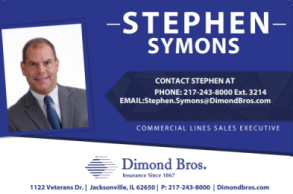Illinois university radio journalists may be at the forefront of a battle on anonymous sources nationwide. Last fall, NPR-Illinois at WUIS in Springfield reporter Rachel Otwell joined ProPublica’s local reporting network to investigate about a series of allegations about sexual harassment at public colleges and universities in the State of Illinois. Otwell’s focus was on how the University of Illinois had helped professors maintain clean service records despite violating sexual misconduct policies.
Otwell’s stories contained anonymous sources. In August, the university declared that under Title IX rules of the federal government funding, Otwell would have to turn over the identity of her sources as required by mandated reporter status for all public university employees. NPR Illinois General Manager Randy Eccles explains the problem in detail. “As employees of the University of Illinois, our journalists are under the jurisdiction of Title IX requirements to be a mandatory reporters, to be responsible employees. That means that if anybody who comes to us with direct knowledge of a sexual misconduct incident, we are required to let that person know that we have to report it to the Title IX office within 48 hours of the report. That comes in conflict with First Amendment protections under the U.S. Constitution where we can keep confidentiality for a source as we are reporting a story. Frequently, a story will take more than 48 hours to fully report. From a First Amendment standpoint, it makes it difficult when the first thing you have to say to a potential anonymous source is that we are going to have to report the incident up to the Title IX office, even if the Title IX office will keep that person’s identity confidential. It can still alter the process of whether that person wants to talk about the problem.”
After the August report and the university’s dictum that Otwell would have to turn over confidential tips, ProPublica set up a firewall and is the lone recipient of “several dozen responses,” according to Charles Ornstein, a ProPublica deputy managing editor overseeing the network. Eccles says where NPR and U of I currently stand on the issue: “The initial ruling of the ethics office at the University of Illinois from a business employment standpoint is that the Title IX policy stands and that our journalists are required to report. The staff then decided to write an open letter to raise the level of this conversation to try to get a resolution for the First Amendment standpoint that for us to do really good journalism, we have to have the ability to talk to people without them being worried that their identity or some sort of retaliation may occur.”
Eccles said that reporters have requested an exemption from the Title IX mandate similar to the psychological services offered by the University of Illinois. He said that the exemption has been denied. Eccles said that NPR-ILLINOIS reporters are currently stonewalled from following up on anonymous tips and that ProPublica is currently handling and following up on those tips. Eccles said the sexual harassment investigation at other universities is where they will focus their current efforts. “We will continue to report this story, especially with any sourcing that comes from other universities; but in this particular case right now to make sure that we are in compliance, ProPublica is taking all the tips and only passing those forward to us that don’t involve our university. The question next is whether ProPublica would determine if there was a good tip that they would have to assign to one of their reporters to move on it. That’s the disappointing thing in all of this – that’s what our reporters have been focused on is not just other universities but the University of Illinois. Also, the first major story came through FOIA documents about a professor at the University of Illinois in Urbana-Champaign.”
Eccles said that WUIS reporters haven’t received any retaliation from the university for their reporting: “In fact, not only talking with people here at the University of Illinois-Springfield but at the Urbana campus where WILL is at, the university has never gotten in the way of us ever covering any story, including the stories about this process. This is really the employment-law side making sure they are doing what they are supposed to do, which is enforcing the Title IX policy. They have indicated that they are not trying to get in the way of us covering stories. It is just that the conflicting policies are causing problems between Title IX and the First Amendment.”
Otwell, an NPR Illinois reporter since 2012, told the Illinois Associated Press she’s “pursuing other angles” but is stymied from following up on tips her story produced. The full text of the letter to the university about providing the Title IX exemption can be found at this link.




